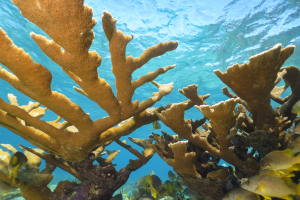 The Remarkable Reefs of Cuba: Hopeful Stories from the Ocean Doctor, by David E. Guggenheim, is a nonfiction account of environmental tragedy, the loss of coral reef ecosystems, and why that loss is devastating to the world’s food chain.
The Remarkable Reefs of Cuba: Hopeful Stories from the Ocean Doctor, by David E. Guggenheim, is a nonfiction account of environmental tragedy, the loss of coral reef ecosystems, and why that loss is devastating to the world’s food chain.
In this insightful discussion, the author delves into the complex dynamics between Cuba and the United States, examining key historical events such as the Cuban Missile Crisis and Russia’s significant role in Cuba’s economic development. Specifically, the speaker highlights Russia’s support in various areas including agriculture, particularly the provision of tractors, equipment, and fertilizers – a critical aspect discussed in this narrative. Furthermore, Guggenheim sheds light on the challenging period of the 1990s known as the Special Period. A time when the Cuban economy plummeted due to the collapse of its primary trade partner, the Soviet Union. Widespread hunger ensued, posing a serious challenge. Drawing from his personal experiences of working in Cuba for over two decades, the author brings a unique perspective to his narrative. There is a genuine exploration of Cuban culture, its people, and the hardships they faced in his reflections.
Guggenheim’s love of the oceans was intensified when he discovered an advertisement in Boy’s Life magazine for Seacamp, a marine science camp on Big Pine Key, Florida. At age 15, the author attended his first summer at Seacamp and began the magical career path to becoming a marine scientist, ocean explorer, submarine pilot, conservation leader, and speaker. His honorary title and the name of his nonprofit organization, Ocean Doctor, reflect his commitment to advancing environmentally sustainable projects to protect coral reef ecosystems.
The author shares his hopes, dreams, and frustrations as his career path leads his interest in exploring the Caribbean coral reefs. He imparts many stories of diving into the ocean, where he and other scientists discover dead and dying reefs. To their amazement, there is a healthy, thriving coral reef teaming with fish in an area south of the Cuban coast.
Much of Cuban history is intertwined with Russian and United States politics. The author relates his personal experiences working as a scientist and living in the country and shares stories of Cuban citizens’ hardships.
The Ocean Doctor discusses this trick question, “Is coral an animal, mineral, or vegetable?” Although most corals resemble mineralized plants, the answer is that they are animals closely related to jellyfish and anemones. Dwelling in colonies, these creatures thrive on plankton, serving as vital nourishment and refuge for numerous fish. They form harmonious partnerships with vibrant algae, ranging from brown and green to breathtaking shades of purple.
Ocean scientists study Cuba’s ocean depths and their remarkably healthy reefs to determine the best solutions for saving dying coral reefs elsewhere. What do fertilizers and insecticides, and farming methods contribute to the kill-offs? Can other countries implement serious changes? What does all this mean to the fish market and your dinner plate?
Readers with scant knowledge of the ocean will learn a great deal about global warming and conservation and how the impact of what goes on under the seas affects the world. An extensive bibliography is included for readers who desire more information.


